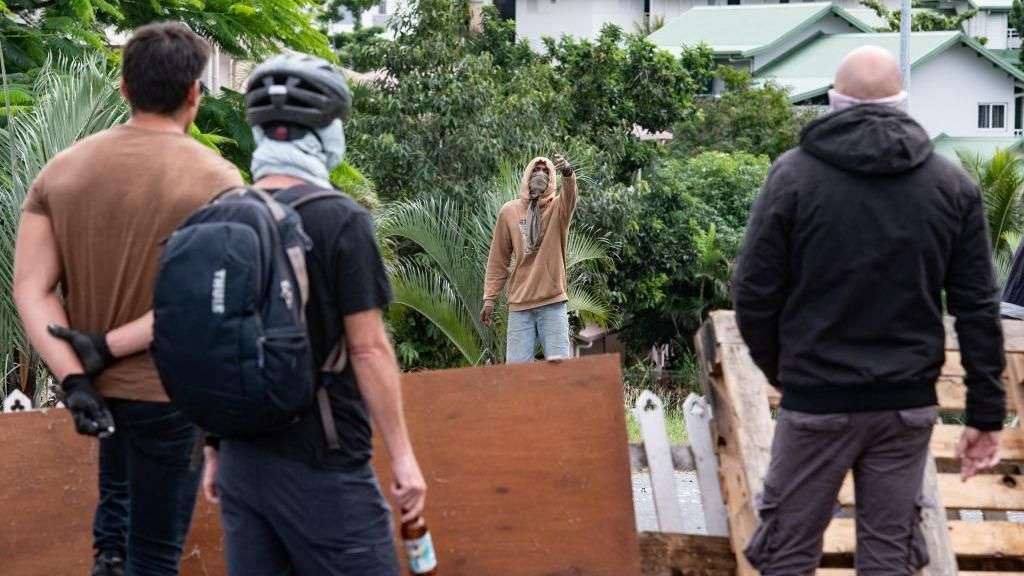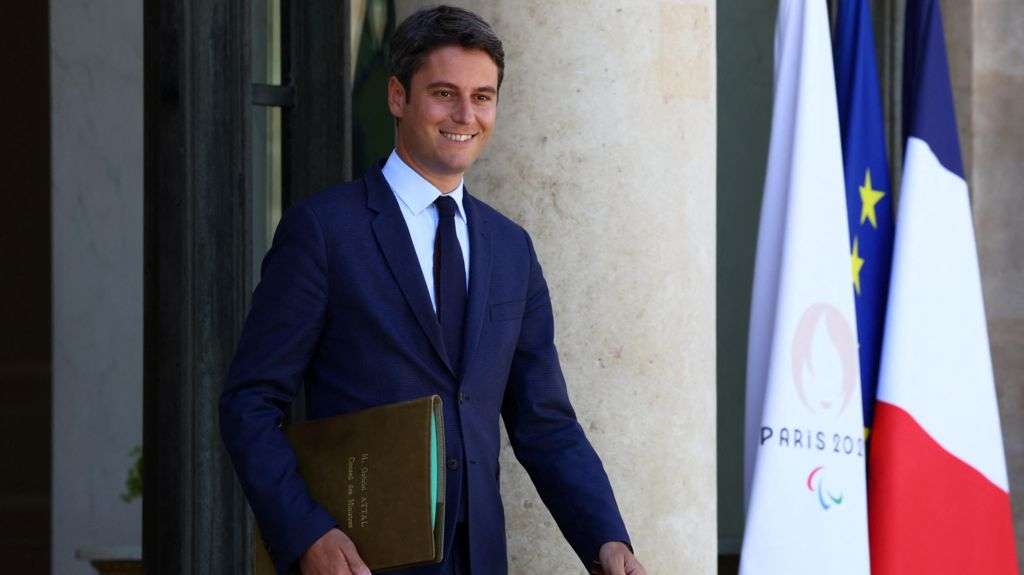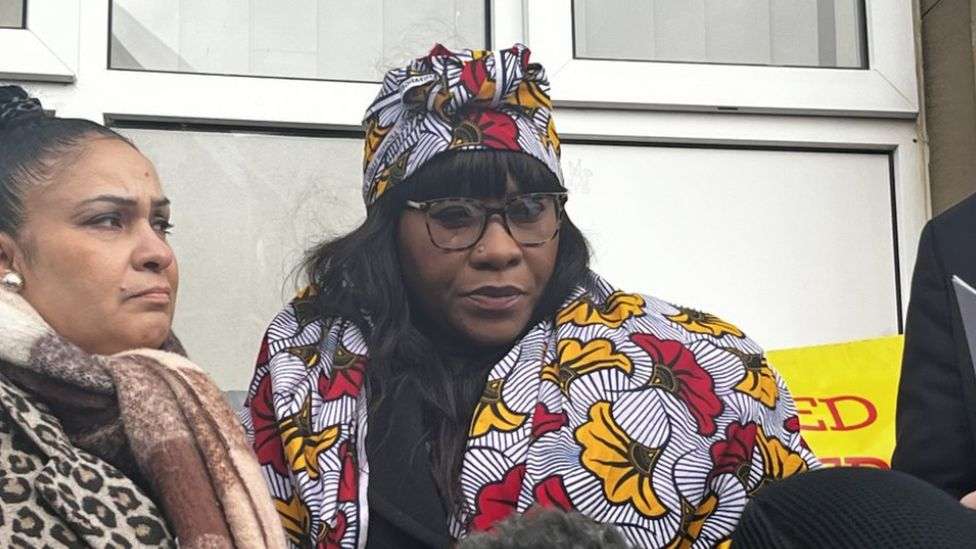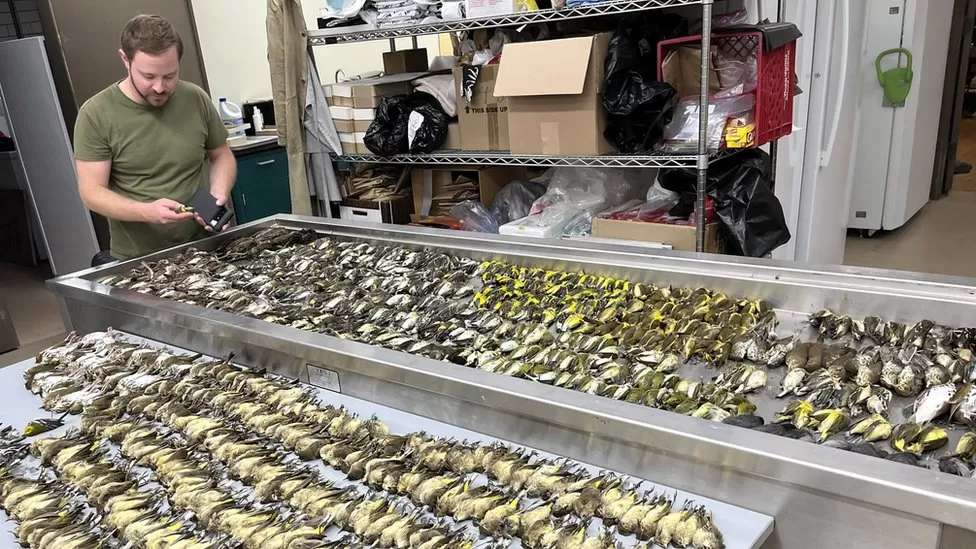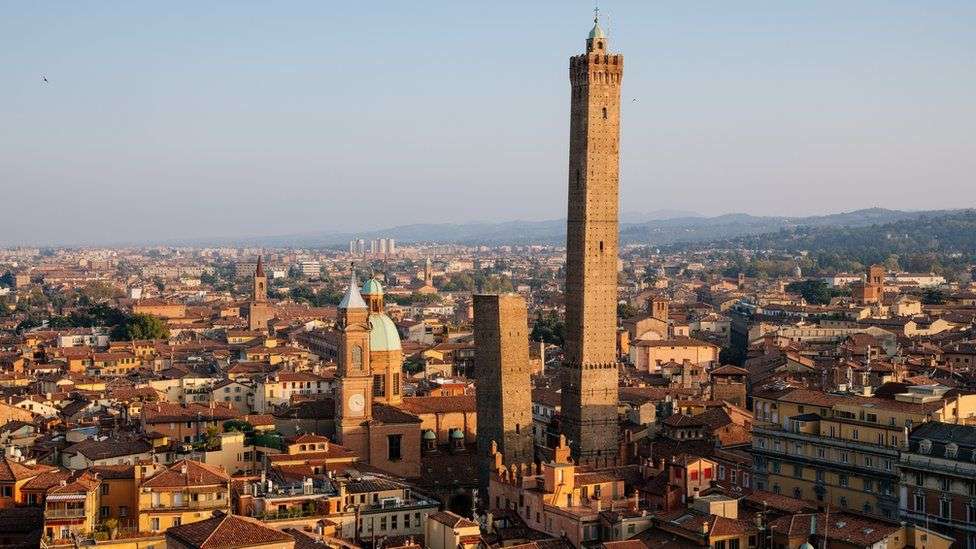The French government has said it will deploy troops to secure ports and the main airport in the Pacific territory of New Caledonia as unrest continues.
Clashes erupted on Monday after lawmakers in Paris backed changes to voting rolls that the indigenous population say will dilute their political influence.
At least four people, including a police officer, have been killed in the violence.
Speaking after chairing a crisis meeting, French Prime Minister Gabriel Attal said a ban on TikTok and a fresh curfew were being introduced to try to restore calm.
President Emmanuel Macron had earlier declared a state of emergency, warning that the violence would be met with a strict response.
The unrest started after lawmakers in Paris proposed granting French residents who have lived in the territory for 10 years voting rights in the province.
The changes were approved by the French parliament on Wednesday morning.
Shops have been looted and public buildings torched and hundreds of people, including around 100 police and gendarmes, have been injured, French Interior Minister Gerald Darmanin said.
"Soldiers have been deployed to secure ports and the airport in New Caledonia," Attal told a crisis ministerial meeting in Paris on Wednesday.
The representative of central government in the territory, Louis Le Franc, has "declared a curfew and banned TikTok", Attal said.
The capital Nouméa has been rocked by violent protests for several nights, including reports of exchanges of fire between rioters and civil defence groups.
On Tuesday, French authorities imposed a night-time curfew and banned public gatherings.
However, authorities said on Wednesday said the "serious disturbances" were continuing, and there had been an attempted prison break-out.
New Caledonia has a population of about 300,000 people, of whom the indigenous Kanak people make up about 40%, or 112,000 people.
The group of islands, located between Australia and Fiji, has been a French territory since the 19th century. This is the worst unrest it has seen since the 1980s.
Under the 1998 Nouméa Accord, France agreed to give the territory more political autonomy and to limit voting in provincial and assembly elections to only those who were residents then.
More than 40,000 French citizens have moved to New Caledonia since.
The agreement allowed for three referendums on the country's future. Independence was rejected in all instances.
The first two showed slim majorities for remaining part of France. The third, in December 2021, was boycotted by pro-independence parties after the authorities refused to postpone the vote due to the Covid epidemic.
"Tonight, France is more beautiful because New Caledonia has decided to stay part of it," Mr Macron had said after the most recent vote in 2021.
New Caledonia enjoys a large degree of autonomy but depends heavily on France for matters like defence and education and still receives large subsidies from Paris.


